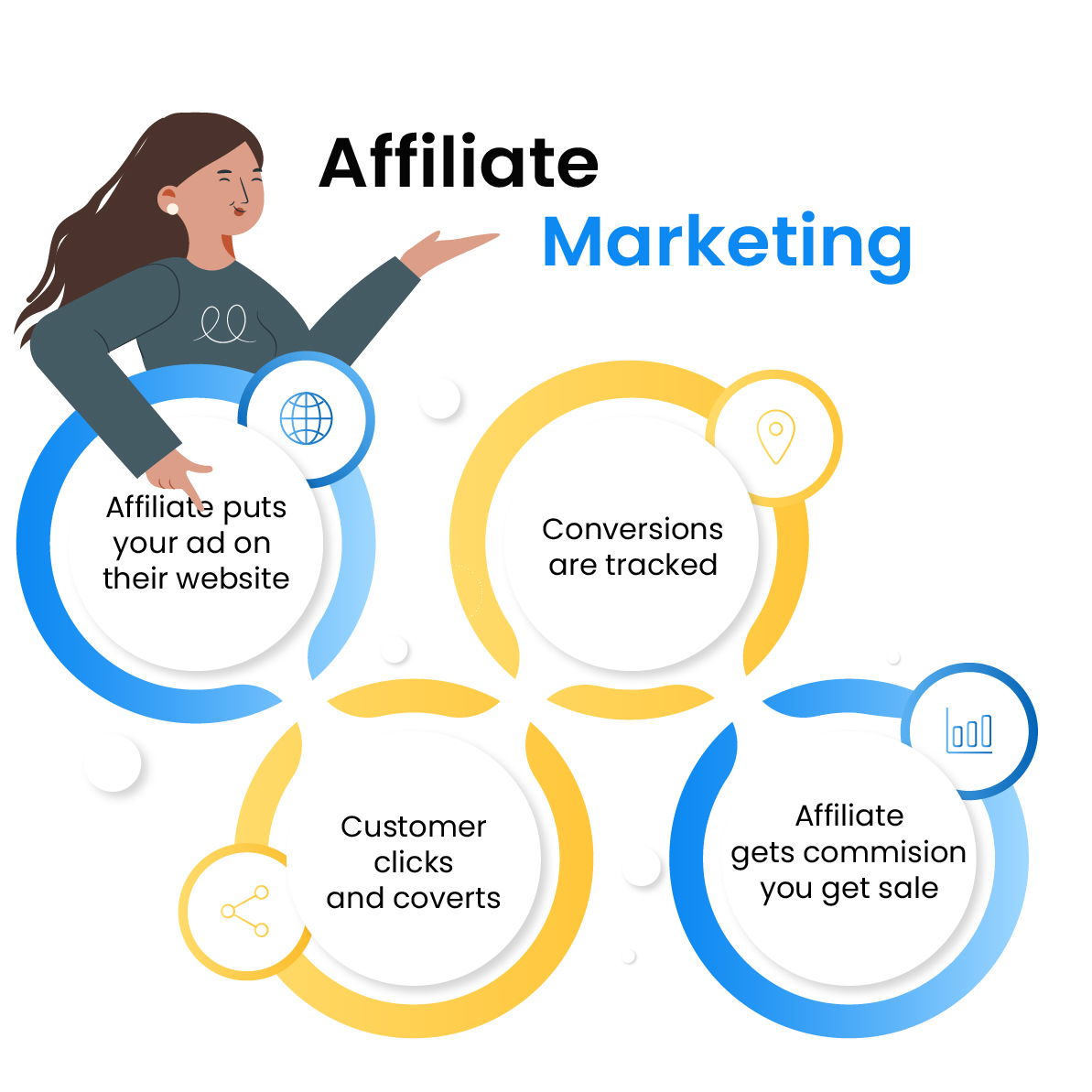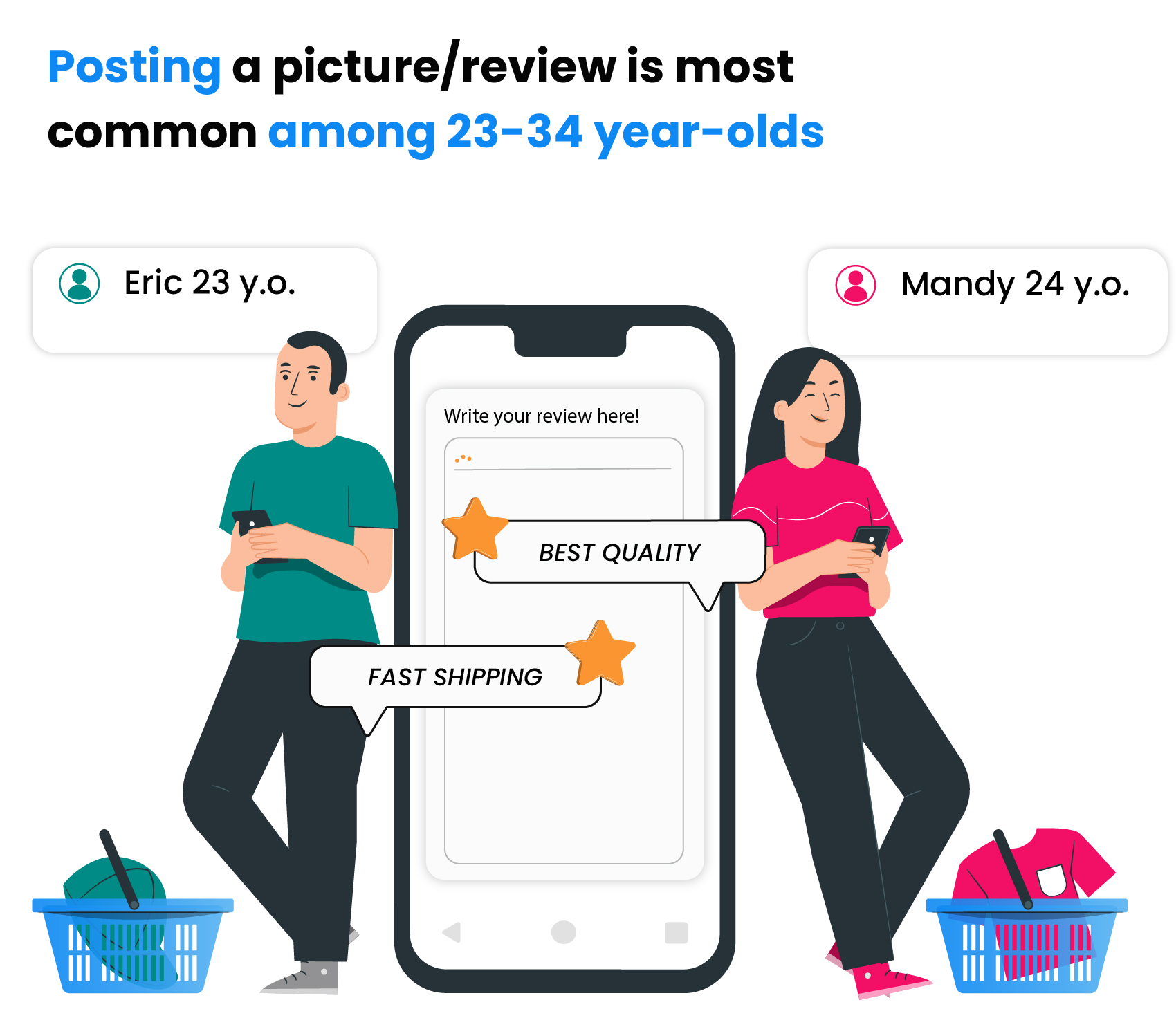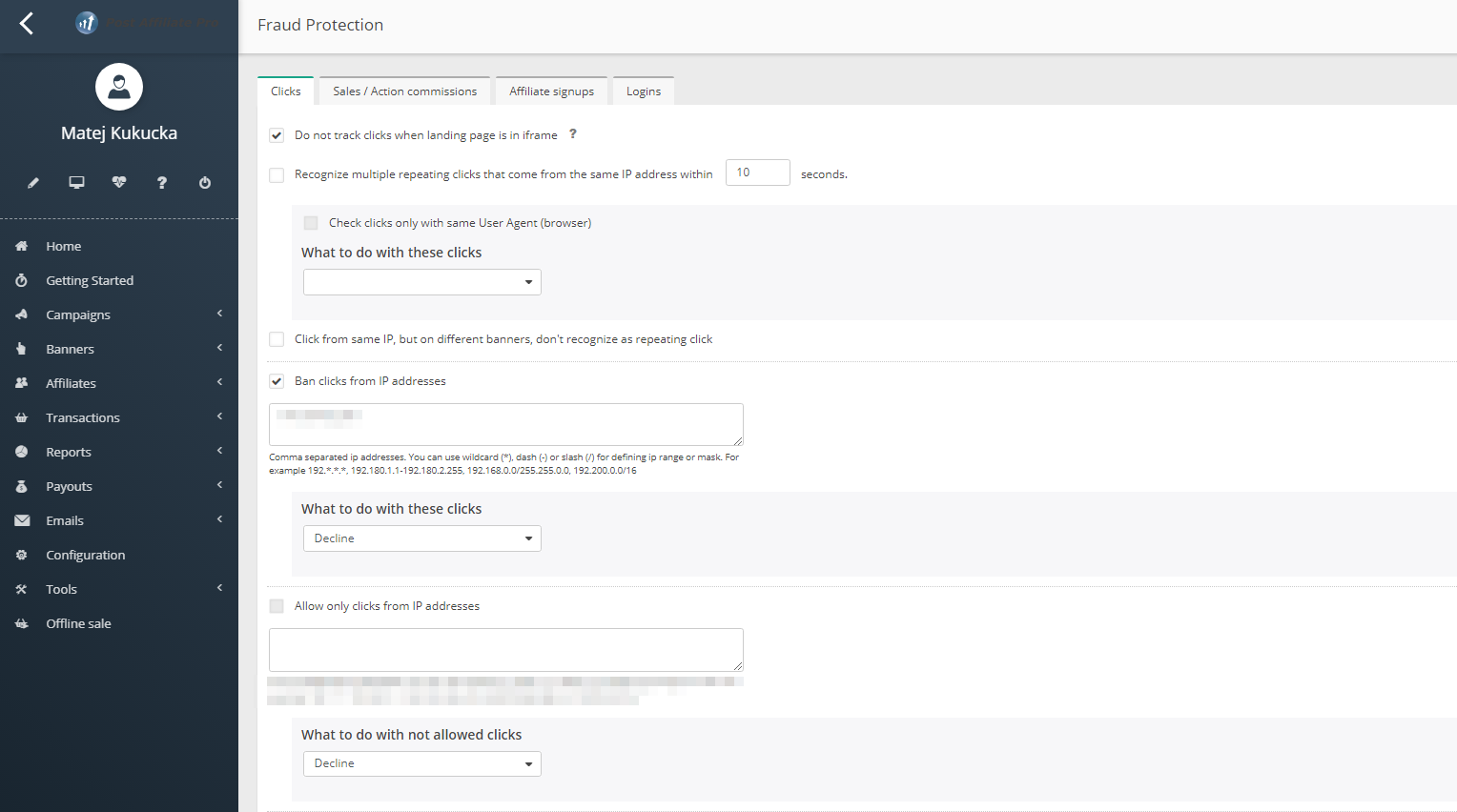
5 of the most common affiliate program challenges
Affiliate marketing is one of the best ways to reach new audiences with your products or services. Here are a few of the most common challenges.

Discover the top 8 affiliate marketing scams to avoid in 2025, including fake products, get-rich-quick schemes, cookie stuffing, and more. Stay informed to protect your business from fraudulent affiliate activities.
Affiliate marketing is undoubtedly one of the top digital marketing strategies, and it has come a long way in cementing its legitimacy. The industry gets bigger every year and shows no signs of stopping. The ability for people to earn passive income and for brands to get their products out there is highly attractive and rewarding. However, as with any successful venture in life, it’s bound to attract the attention of unscrupulous individuals looking to take advantage of people. The best way around this is to be well informed.
There are many ways in which fake affiliate marketers try to get around putting work into generating leads and creating meaningful, engaging content. Being associated with this kind of people can really hurt your affiliate programs, and even put your product’s and brand’s reputation on the line.
Affiliate marketing scams cost a lot of money for businesses as well, so learning how to spot them is imperative to having a successful affiliate marketing campaign.
In the broadest sense, affiliate scams are fraudulent activities designed to take money from affiliate marketing programs.
A clear example of this is when dishonest affiliates use counterfeit credit cards to make a purchase of the advertised product and earn a commission from an unlawful sale. In a more specific sense, affiliate scams are any sort of behavior by the affiliates that goes against the terms and conditions of your affiliate program . For example, the use of bots to generate fake clicks or drive traffic to a specific website.
These are just two ways in which scammers try to take advantage of your online business, but they are hardly the only ones. Even with some forms of fraud going undetected, scammers cost advertisers $1.4 billion in 2020 alone. This is a lot of money, especially when it could do wonders for you when put to good use.
The affiliate marketing industry’s growth has been exponential over the past years. More than $8 billion are projected to be spent in this industry in 2025.
This incredible success inevitably attracts the attention of scammers and fraudsters looking for an easy buck. In affiliate marketing, businesses reward their affiliates after they successfully generate a new lead , or influence a customer into taking the desired action. These can be filling up a form, clicking on a link, or making a purchase.

These actions are tracked through codes embedded in affiliate links. They help affiliate managers compensate their advertisers accordingly. This makes affiliate programs a great way to earn additional income if you are willing to put the work into promoting products and services. However, this also means that there is money to be made if you can trick a company into believing that you are putting in the work and getting results. Let’s think of programs with a Pay-Per-Click model; In cases like these, scammers can use malware to make it seem like someone clicked on an affiliate link without it actually happening. This way, false affiliates get rewarded without ever providing any value to the partnership. It is also cheap and easy for scammers to set up systems like these, making it very profitable for them.
Although this has been confused by some, let’s clarify this point straight away: Affiliate marketing is NOT a pyramid scheme. Affiliate marketing is a 100% legal partnership between businesses and individuals looking to help each other. Affiliate programs are performance-based marketing , where affiliates get commissions per action completed, whether they are sales, clicks, or other specific tasks. There is a real product behind the ad, and there are real customers buying the products and clicking the links.

In pyramid schemes, the incentive is not to make a sale but rather to get someone else to join in, who then has to get someone else to join, and so forth. The reason for this is that people usually have to pay a fee to join, and/or have to stock up on the product that they would later need to sell themselves. This makes it so that the revenue made by the company comes from their own “employees” buying the product or joining the scheme, and not from external purchases. Whether you later sell the product that you bought is irrelevant to the Multi-Level Marketing program, because they have already made their money from you.
If you contrast this with the affiliate marketing model, the differences are clear. You are not required to give money to the company, not required to buy the product yourself, and lastly, not required to have someone else join the program. You are simply rewarded a commission on each lead you generate.
Now that we understand what affiliate marketing is and why scammers have found a way to take advantage of it, let’s take a deep dive into some of the most common affiliate marketing scams, as well as the tell-tale signs so you can avoid them.
Some of the most common affiliate scams are when fraudsters create websites and ads for products or services that don’t exist. Most of the time, they use the name and branding of a well-established affiliate marketing company to fool people into believing in its legitimacy. They might even copy their entire website to gain traffic and push their scam onto more and more people.
This is unfortunately very common practice in pyramid schemes, where there is no actual product behind the ads, and money is made by getting people to join the scheme. Most of these scams will have fake customer reviews and even phony spokespeople to talk about the wonders of the non-existing product.
Make sure to keep an eye out for the review page, as this is one of the main signs that you may have encountered a scam. If there are only positive reviews for the “product”, you might want to do some further research. Not even the best products by the most successful companies get 100% customer satisfaction. In fact, according to this report, people are more inclined to leave a review when they are unsatisfied with the product or service and would like to warn others not to make the same mistake.

Another sign that you ran into a fake product is the use of low-quality or stock photos. On mostly-visual mediums like business websites or social media pages , legitimate brands will invest time and money to get their products to look appealing and increase their chances of catching your eye.
Always research the products you are looking to buy. In any case, you are most likely not the first person to fall for the scam, and you might find other testimonies warning about the “product”.
Much like pyramid schemes, get-rich-quick schemes take advantage of people looking for additional income and make wild promises of wealth and success with minimal work. As most people know, aside from being born into a wealthy family, there is no such thing as becoming rich without putting effort and working hard. Affiliate marketing is no different. You can make a lot of money, but you will need to put a lot of work into developing your strategies to help brands acquire customers, and naturally, it will probably not happen overnight.
A clear sign of affiliate get-rich-quick schemes is the promise of unrealistic commissions on each sale, which is simply not possible considering that the brand whose product is advertised also needs to make money on the sale.
On average, affiliate programs ’ commissions range from 5% to 30%, so if you run into a program offering 80% commissions, you should probably do some follow-up research on it. Unlike these scams with shady and unclear conditions, legitimate affiliate programs are transparent and straightforward about their payment plans because they have nothing to hide and want to build a partnership of mutual trust with their affiliates .
As we explained before, merchants give links to their affiliates that they can share with potential customers, and if an action is completed, these links help identify which affiliate deserves credit for that action. The way these links work is by leaving a small text file (cookie) that websites can read and trace back to the affiliate .

Now, what exactly is ‘cookie stuffing’?
Cookie stuffing is when an affiliate leaves many cookies belonging to different websites on a visitor’s device. This can be done through means such as malicious extensions, a website, or a pop-up. This means if the visitor later decides to make a purchase on one of these websites, the affiliate who dropped the cookie will get a commission on a sale that they did nothing to facilitate. In some even worse cases, some of these browser cookies can override those left by legitimate affiliates and strip them of their reward.
Let’s take an example: In the early 2010s, Shawn Hogan was the CEO of a successful marketing company called Digital Point Solutions. He created a browser toolbar that would stuff eBay third-party cookies on the device utilizing the toolbar. This would later trace any purchase the users made on eBay back to him, even though he had nothing to do with facilitating the purchase. Hogan made millions of dollars this way and was later imprisoned following an FBI investigation.
Transaction fraud is the practice of utilizing stolen credit cards to make a purchase through an affiliate link . Credit cards and PayPal details are often stolen and traded on places like the dark web and can be used to make unlawful purchases without the owner’s consent. This is particularly bad for businesses since they lose money from paying the affiliate’s commission, the product shipped, and the eventual credit card chargeback that the card owner will request once they notice the illegal purchase.
Bot traffic, also known as spoof traffic, is a scam method usually used in Pay-Per-Click and Pay-Per-Impression models since they don’t require a purchase and can be performed fairly cheaply.
The way it works is by generating bad traffic with programs and scripts instead of human interactions, leading to invalid clicks. Scammers may present themselves as valuable partners by utilizing paid advertising to rank high if you do a Google search on them. They may also have paid for fake social media followers, making it seem like they have a huge reach that can help your business make sales when in reality they’re mostly meaningless bot interactions.
A good way of spotting these types of scams is if an affiliate brings in huge amounts of traffic to your website, but nearly no conversions. Statistically speaking, this is a tell-tale sign of bot traffic.
In affiliate marketing, leads are actions taken by visitors. These actions can vary from filling up a form, signing up for a newsletter, or whatever the merchant is willing to pay for. The reason merchants are willing to invest in this is that the sign-ups usually imply that the visitor is interested in the product.

In fake lead scams, fraudsters will utilize personal information that has been stolen from people and sold through the black market to fill up the forms, sign up for newsletters , or provide other details. This will make it seem like their affiliate links are bringing a lot of quality leads when in reality the information belongs to people that have no interest in the product and don’t know they are being signed up for something. Hence, affiliates receive commissions on fake leads that provide no value to retailers.
Typosquatting, also called URL hijacking, is when someone buys a URL domain that is very similar to the genuine one. When users mistakenly click on that link, they are redirected to the actual website. The redirection process is done via an affiliate link, allowing the hijacker to claim a commission on leads they did not help create.
For example, if your website is “www.awesomeproduct.com”, scammers can register “www.awesome-product.com”, and redirect anyone clicking on it through their affiliate link. The problem here is that the users were going to land on your website via their own web searches, but the fake affiliate added an extra step and got rewarded for leads they did not generate.
Website cloning is the process of copying an existing website’s design and elements. In the world of affiliate marketing scams, this is used to copy a successful affiliate marketer ’s website and content to steal their traffic and claim commissions without putting the actual work in.
It seems similar to typosquatting, but it goes much further than that: first, websites are usually copyrighted, and cloning the content would be a copyright violation. And second, the scammer is taking credit for someone else’s work.

Let’s say you have a blog where you review musical instruments and create thorough blogs about them, helping you create an audience that trusts you and are willing to click on your affiliate links . Scammers will copy the design and content that you worked hard on, only replacing your affiliate links with their own, and eventually get to reap the rewards. This hurts affiliates and merchants alike. Without their affiliate revenue , original affiliates might lose their incentive to create more content, and since the scammers need content to clone, merchants will lose the leads generated by both the original creator and the scammer.
We have already seen some examples of affiliate marketing scams throughout this article. However, sadly enough, scammers are extremely creative in their tactics, and new types of scams are being created all the time. Here are some more examples of bad practices in the affiliate marketing industry .
In early 2021, Amazon cracked down on Amazon affiliate program scams involving text messages utilizing the brand’s name. These text messages were made to trick people into clicking on links that were allegedly Amazon’s and promising rewards for completing a survey. After the survey was completed, users were redirected to different affiliate sites to buy products or services for which the scammer got money from affiliate programs.
There are also examples of Facebook affiliate marketing scams, where they’ve had a similar type of scam running using the Target brand name. The process was similar to the ones previously mentioned, but instead of using text messages, it was using Facebook’s targeted ads to promise the opportunity to shop at Target for free for a week. Instead, people had to give up their personal information including email addresses, to later be targeted by spamming campaigns.
Another high-profile example comes in the form of attribution fraud through mobile apps. This method is similar to cookie-stuffing. However, in this case, the malware was used to check for activity on mobile devices. Once an app installation started, the malware would search for campaigns about the relevant app, make a fake click report, and register the last click engagement to take credit for an organic install or one generated by someone else. Uber claimed it was scammed for over $70 million in attribution fraud, and sued the company responsible for the malware.
As we have seen, there are many ways to avoid affiliate marketing scams, but being informed about the latest affiliate fraud techniques is one of the most important.
Always research affiliates and their reputation, and see what their reviews say. Once again, just like with products, if they lack negative reviews, that is a red flag.
If you want to enhance your customer acquisition strategies and run successful campaigns without having to stress about scammers taking your money, the best advice is to get an affiliate tracking solution from an affiliate marketing company that provides fraud protection features .

Post Affiliate Pro offers several fraud protection features, including click and sale fraud and affiliate signup fraud. It is by far one of the most affordable tracking solutions of its kind. You can even try it for free if you sign up for a free trial .
As the affiliate marketing industry keeps growing every year, more and more people are finding creative ways of earning passive income through it. It is a great tool that benefits everybody involved and helps brands reach new and bigger audiences.
However, its success is inevitably seen by scammers as an opportunity to profit off of other people’s work and even steal from merchants, affiliates, and customers alike.
Because of the digital revolution that we are living through, it has become increasingly easy for fraudsters to set up bots and other systems that will perform actions and try to trick merchants into thinking they are providing value to the affiliate partnership. In reality, it is just empty statistics that won’t convert into actual leads or sales. These scams can take many forms, from false clicks and cookie stuffing to fake leads and transaction frauds. Luckily, there are ways to counter them and there are tools at your disposal to be able to tell a friend from a foe.
Affiliate marketing is a real partnership in which individuals receive commissions for displaying a company’s ads.
Cookie stuffing affiliate fraud is a deceptive practice where an affiliate places an affiliate tracking cookie on a user's computer without their knowledge or consent. This can happen through techniques such as forced clicks, pop-ups, or misleading links. The goal is to fraudulently claim commissions for sales or leads that the affiliate did not actually generate.
Affiliate marketing is NOT a pyramid scheme; affiliates are paid commissions on leads or sales generated.
There are several ways to detect affiliate fraud. Some methods include monitoring for unusual spikes in traffic or conversions, verifying the legitimacy of affiliate websites, using fraud detection tools and services, and analyzing the behavior and patterns of affiliate activity. It is also important to establish clear guidelines and policies for affiliates and regularly audit their activity to spot any potential fraudulent behavior.
Affiliate marketing is a form of digital marketing that is 100% legal; however, some people might use it to advertise illegal activities like scams.
Affiliate marketing fraud is when scammers use affiliate programs to scam users or utilize different methods to receive affiliate commissions that they don’t deserve. Some of the fraudulent strategies involve cookie-stuffing, website cloning, typosquatting, creating fake leads, and bot traffic.
Viktor Zeman is a co-owner of QualityUnit. Even after 20 years of leading the company, he remains primarily a software engineer, specializing in AI, programmatic SEO, and backend development. He has contributed to numerous projects, including LiveAgent, PostAffiliatePro, FlowHunt, UrlsLab, and many others.

Post Affiliate Pro offers robust fraud protection features to keep your affiliate program safe. Learn how to detect and prevent affiliate marketing scams with industry-leading tools.

Affiliate marketing is one of the best ways to reach new audiences with your products or services. Here are a few of the most common challenges.

There are many myths surrounding affiliate marketing. Read this article to learn six misconceptions about this type of marketing.

Would you like to earn passive income through affiliate marketing? Check out our guide to affiliate marketing before you jump in.
Cookie Consent
We use cookies to enhance your browsing experience and analyze our traffic. See our privacy policy.